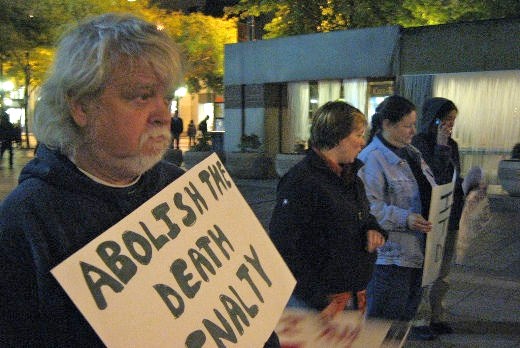
On CBS “60 Minutes” show and in a detailed essay in The New York Review of Books, retired U.S. Supreme Court Justice John Paul Stevens came out swinging against the death penalty.
It is a remarkable and courageous shift in his opinion, after years of supporting it.
Stevens, who came to the court a Republican in 1975, was appointed by then-President Gerald Ford. But over the years, as the court shifted to the far-right, he became a part of the liberal wing of the court.
In June, he retired at age 90, and has since decided to speak out on a number of important issues.
Using very blunt words, the retired justice said he once thought the death penalty could be administered “rationally and fairly.”
But the ex-justice, sharply critical of the high court’s current right-wing majority, now has concluded, “That personnel changes on the court, coupled with ‘regrettable judicial activism’, had created a system of capital punishment that is shot through with racism, skewed toward conviction, infected with politics and tinged with hysteria.”
In Stevens’ review of David Garland’s book “Peculiar Institution: America’s Death Penalty in an Age of Abolition,” he further elaborates this view. He is critical of the way politicians, including district attorneys and elected judges, use their support for the death penalty to win elections.
He points out the argument that the death penalty serves as deterrent is false. “Death penalty states have generally higher crime rates than ‘abolitionist’ ones,” Stevens says.
Since 1973, more than 130 people have been freed from death row, most based on DNA evidence.
Stevens does not hold back on how racism plays a major role in U.S. courts, especially when it comes to capital crimes and the use of the death penalty.
He says the court took “wrong turns” in deciding how juries in death penalty cases are chosen; what evidence they may hear; in not looking closely enough at racial disparities in the capital justice system; in failing to police the role of politics can play in decisions to seek and impose the death penalty.
On “60 Minutes,” Stevens said, “We would all be better off if we simple did away with the death penalty like most civilized countries have done.”
It is so important that Stevens is speaking out. Hopefully it will open a new round of discussion and political activism that can bring about a change in the racist nature of our court system from top to bottom.
Michelle Alexander, in her excellent book, “The New Jim Crow,” points out “people of all races use and sell illegal drugs at remarkably similar rates.” She cites a number of studies to prove the point.
Then, she further concludes, “Any notion that drug use among blacks is more severe or dangerous is belied by data: white youth have about three times the number of drug related emergency room visits as their African American counterparts.”
Study after study shows blacks and Latinos get arrested at a higher rate and receive longer sentences for lesser or equal crimes than whites. For example, the greater penalties associated with possession of crack cocaine vs. powder cocaine are aimed at African Americans and Latinos. That’s one major factor in how our country got the disgraceful human rights nightmare of black males constituting over half of the U.S. prison population.
And when you disproportionately entrap and incarcerate massive numbers of mainly poor, working class youth of color, you take away their right to vote (in many states) and to get a job for the rest of their lives.
This is the result of the systemic racism — and I would add classism — in our nation’s court system. It is the essence of “The New Jim Crow,” and like the old Jim Crow it is unconstitutional and must be outlawed. It is most blatant when it comes to the death penalty.
New York Times columnist Bob Herbert described the death penalty as nothing but “an abomination- a grotesque, uncivilized, overwhelmingly racist affront to the very idea of justice.”
The practice of the death penalty in our country is historically rooted in the lynch mob. Mob rule and so called mob “justice” were infused with racist hysteria, where bigotry determines guilt and innocence.
This makes one consider that it really does matter who occupies the White House and the U.S. Congress; who appoints judges and passes legislation.
Change is still urgent and the struggle must continue.


 Join Now
Join Now